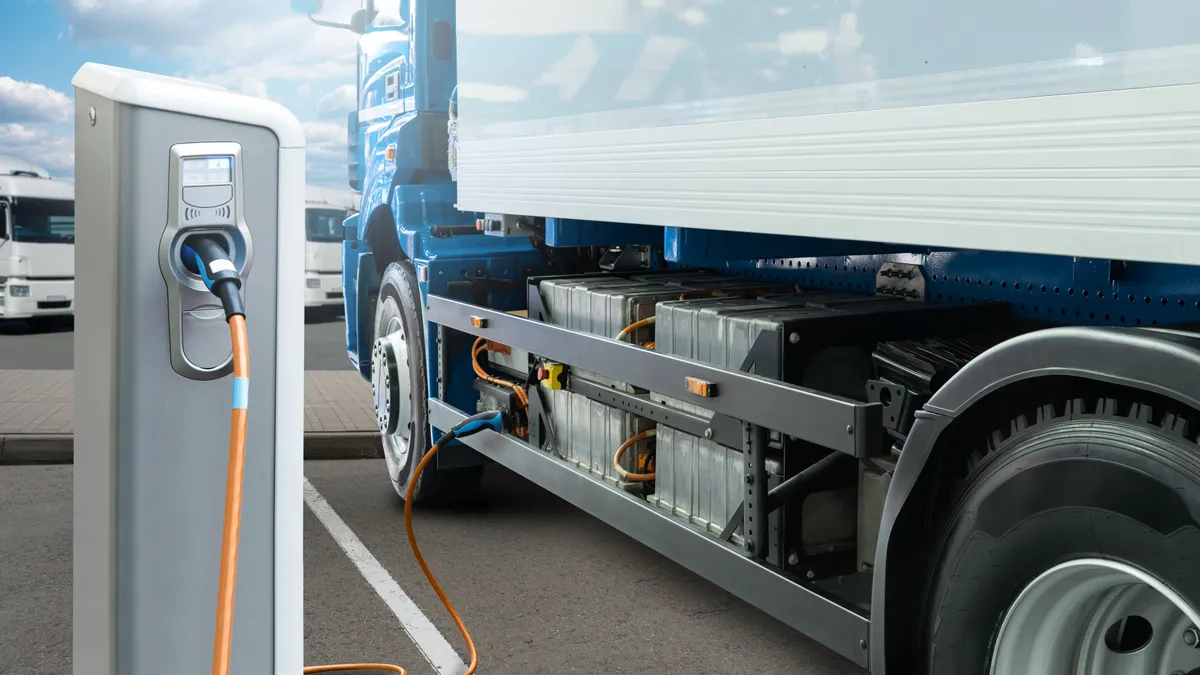
The Future of Electric Trucks – Trends and Innovations
Electric trucks reduce both fuel consumption and greenhouse gas emissions, so truck manufacturers have focused their research and development efforts on developing the technology in order to accelerate its rollout.
Fleet operatorss can take advantage of new technology to reduce total costs of ownership while taking advantage of other advantages, including tracking truck performance with telematics and more.
Battery Technology
Battery technology lies at the core of an electric vehicle. Constant innovation in battery development helps bring down upfront costs, speed up charging times and extend driving range – ultimately making zero emission trucks more competitive with diesel and petrol vehicles both on a cost per km basis and cost per ton-km basis.
Demand for electric trucks is rapidly rising as governments and corporations place greater importance on environmental sustainability and zero emission transportation solutions. Strict emissions standards aim at the retirement of fossil fuel vehicles while financial incentives encourage their adoption as electric models.
As battery prices continue to decrease and charging infrastructure develops, electric trucks should become cost-competitive with diesel models on a per km and per ton-km basis. Furthermore, new battery chemistries are being developed that enhance energy density and performance; some market leaders have begun switching away from traditional nickel-based chemistries (NMC, NCA) toward less costly iron phosphate chemistries; this move may speed up global adoption of electric trucks.
Electric Motors
Electric motors are more energy-efficient and less maintenance intensive than combustion engines, as well as being free from emissions that pollute our environment. Given that logistics industries rely heavily on trucks, converting to electric ones could significantly cut transportation costs while decreasing carbon footprint.
IDTechEx’s report, “EV Motors 2024-2034,” offers OEM strategies and technology trends in the EV motor market for 2024-2034, including an exhaustive model database and detailed market analyses that compare types, performances, thermal management features and key applications of electric motors.
Electric motors are evolving quickly. Their latest generation uses only 15-20% energy when braking or idling, significantly less than the 64-75% consumed by combustion engines when doing this same task. Furthermore, electric motors weigh less and have faster payback times, leading to lower total costs and faster payback periods than their traditional counterparts. Switching over can result in the replacement of numerous combustion vehicles in the near future.
Automated Driving
For decades, freight industry dreamers have dreamed of an autonomous freight industry. At 2022 Move America truck technology conference experts predict this dream may finally become a reality, with self-driving trucks logging thousands of miles on highways by the time 2023 rolls around.
Daimler offers an electric Freightliner eCascadia truck which utilizes platooning technology in order to cut fuel usage on long, cross-country journeys. By closely following each other and following closely behind each other, Daimler hopes that platooning will become part of their regular service offering. Currently only offered as a pilot program but soon become part of regular service offering!
Einride, a Swedish startup offering all-electric autonomous trucks without cabs, promises that they will have full production SAE Level 4 autonomous trucks ready for sale by 2027. Waymo recently transitioned from trucking to ride-hailing but recently developed an autonomous truck which has completed over 100,000 miles of testing with their ride-hailing partner.
Connectivity
Trucks are an essential component of the freight industry, yet they also create pollution that poses threats to public health and the environment. Major trucking companies have pledged to convert at least 30% of their new heavy-duty trucks to electric models by 2030 to reduce environmental impacts and mitigate impacts on public health.
As technology improves, electric trucks have become more cost-competitive with diesel alternatives in terms of upfront and lifetime costs. Thanks to an expanding selection of models and investments in charging infrastructure as well as advanced features like route optimization and real-time battery monitoring systems, the electric truck market could see significant expansion.
Additionally, some electric vehicle manufacturers and lessors are offering Truck-as-a-Service packages where fleets can access all the trucks they require for a monthly fee – another smart way of increasing adoption of electric trucks in industry.


